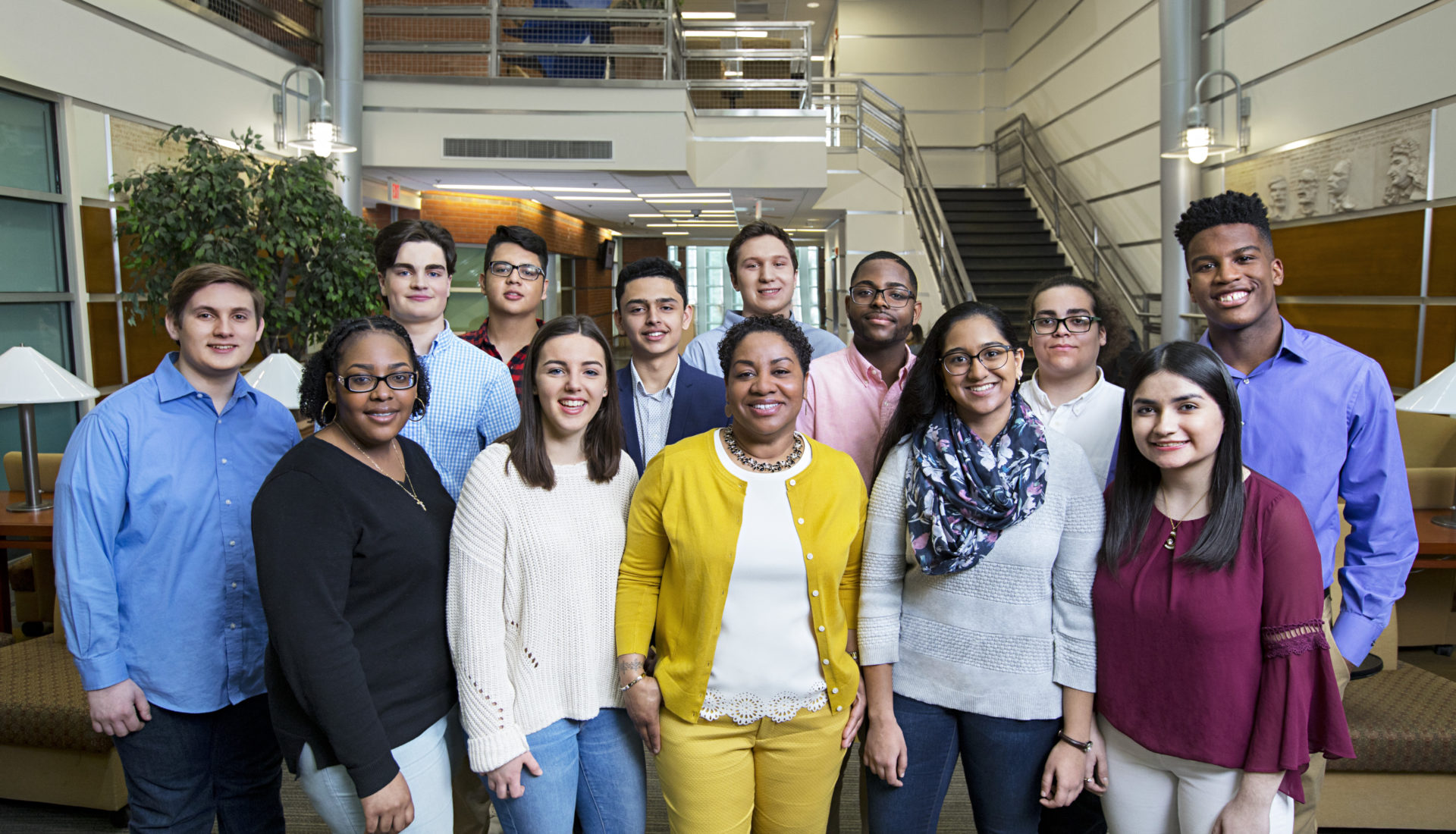Data that employers are paying attention to in Maryland
40%
Fourth graders reading at or above grade level
35.9%
of adults with some college, but no degree
4.3%
of adults are unemployed

Developing Talent for Middle-Skill Jobs
IBM's P-TECH 9-14 School Model provides young people, primarily from under served backgrounds, the skills and credentials required for 21st century careers. Students earn their high school diploma and a no-cost associate degree, along with workplace skills acquired through mentoring, internships, and more.

Bridging Classroom to Career
Through public-private partnership, we collectively provide students of all backgrounds with the academic, technical, and professional skills required to compete in the 21st century economy.
new collar jobs by 2024
The Challenge
Employers are not able to fill competitive jobs because the skills of the workforce have not kept pace with the changing economic landscape. If left unresolved, the global skills gap will have profound effects on individuals and economies worldwide. Many young adults do not have the skills needed to enter and succeed in growth sectors of the economy.
The U.S. economy will create 16 million middle-skill jobs by 2024 — positions requiring postsecondary degrees but not necessarily a four-year college degree. As the demand for higher skill jobs increases, the demand for jobs requiring only a high school diploma disappear — nearly seven million between 2008 and 2016.
Providing students with supported pathways to earn the skills and credentials required for productive careers and ongoing education will have long-term impacts on individuals, local economies, and society as a whole.
The Solution
IBM’s P-TECH School Model is a partnership between industry, education, and government that extends high school from the traditional four years to six, with a focus on historically underserved youth. When students graduate, they earn both their high school diploma and a free associate or two-year postsecondary degree directly aligned to industry needs.
This model eases the transitions between high school, college, and the professional world. It recognizes that students need early and engaging experiences with the world of work, to make the academic work in high school and college meaningful and to fully prepare them with the workplace skills required by employers. Opportunities to take challenging, relevant courses, and to gain exposure to the workplace, can be powerful motivators for students.
